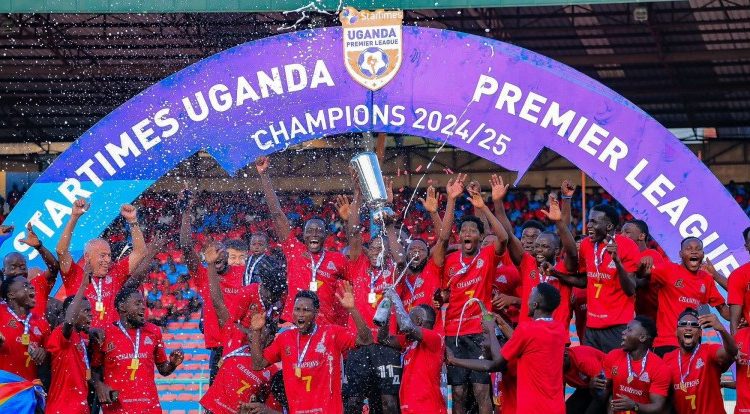The Federation of Uganda Football Associations (FUFA) is facing intense criticism over its controversial plan to overhaul the Uganda Premier League (UPL), with stakeholders warning that the new structure threatens to destabilize, rather than develop, Ugandan football.
At the heart of the backlash is FUFA’s proposed three-phase league format, set to roll out in the 2025/26 season.
Instead of excitement, the plan has sparked outrage among top-tier clubs, who argue that FUFA is sacrificing stability and tradition for an ill-conceived experiment that could weaken competition, strain resources, and erode trust between the federation and its stakeholders.
Clubs Cry Foul Over “Cash-for-Compliance” Scheme
FUFA’s aggressive push for reforms has been met with stiff resistance, with clubs accusing the federation of using a Shs3.4 billion “development fund” as a weapon to force compliance.
At a tense consultative meeting on September 2 at Kampala’s Serena Hotel, FUFA issued an ultimatum: clubs must endorse the reforms by September 8 or forfeit access to the much-publicized fund, which will instead be redirected to the FUFA Big League.
Vipers SC president Dr. Lawrence Mulindwa, one of several club bosses challenging the move, condemned the rush to dismantle a system that has stood for decades.
“What has the existing format done so bad that it must be quashed with immediate effect?” Mulindwa asked.
This heavy-handed approach, critics say, is not only undermining dialogue but also highlighting FUFA’s growing control over the purse strings, deepening mistrust between the federation and clubs already grappling with financial instability.
Financial “Support” That Clubs Won’t See
Even if clubs concede, much of the Shs3.4 billion package will remain under FUFA’s control, allocated for player insurance, bonuses, and other centrally managed initiatives. For clubs struggling to cover salaries, transport, and operations, this feels like another missed opportunity.
“Even the prize money for the Premier League and Uganda Cup is rarely paid on time. Some clubs have been relegated without receiving their promised share,” lamented one club president.
Another added:
“FUFA has always said it cannot invest in clubs, even with government funding. What has changed now, and why must it come at the cost of a new format?”
History Shows Experiments Don’t Work
The UPL’s current format has stood firm for close to 60 years, with only brief and unsuccessful experiments. Critics argue FUFA’s latest idea risks plunging Ugandan football into chaos rather than progress. Structural reforms, they say, should be backed by detailed feasibility studies and a track record of delivering on promises, neither of which FUFA has provided.
The federation’s failure to meet previous funding commitments further fuels skepticism. Clubs point to the unfulfilled pledge of Shs50 million per team per season as proof that FUFA’s promises cannot be taken at face value.
Reform or Power Grab?
By tying development funding to acceptance of the reforms, FUFA has created the perception that it is less interested in genuine development and more intent on tightening control over the league. Instead of strengthening a system that has nurtured talent for decades, critics say the federation is pushing a “cash-for-compliance” agenda that could destabilize Ugandan football for years to come.
With the September 8 deadline looming, a number of UPL clubs remain firmly opposed. The proposed reforms, which FUFA hoped would be a historic step forward, are now widely viewed as a reckless gamble. If pushed through, they could fracture relationships between clubs and the federation, discourage investor confidence, and leave Uganda’s football ecosystem weaker, not stronger.
Ugandan football doesn’t need flashy gimmicks; it needs a sustainable plan that prioritizes club stability, grassroots investment, and transparency. For now, FUFA’s reforms are shaping up to be a step backward.





























